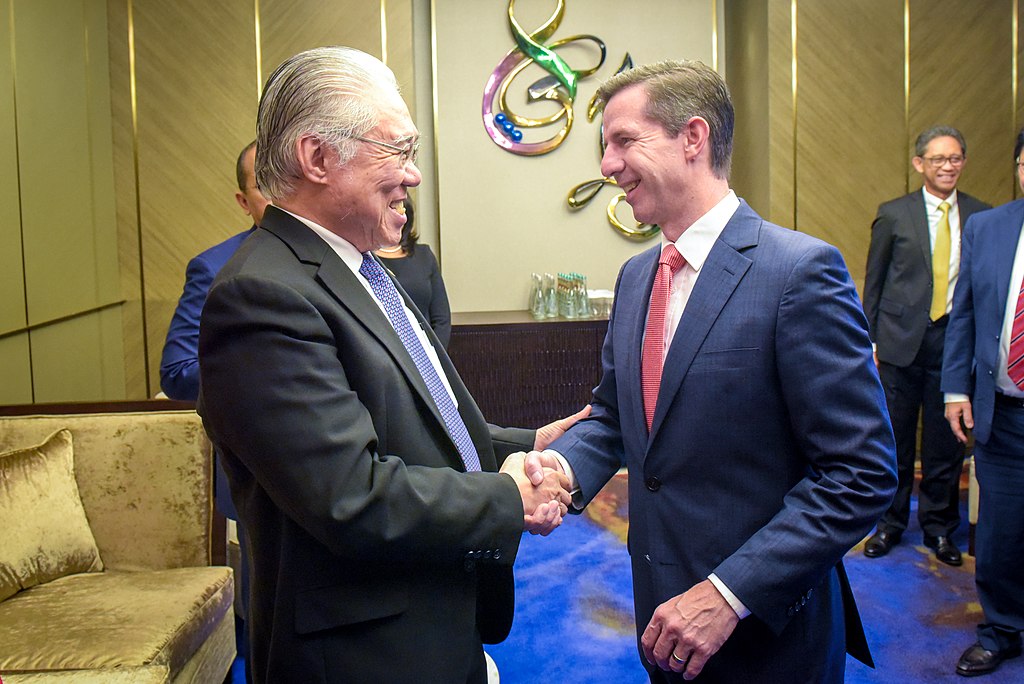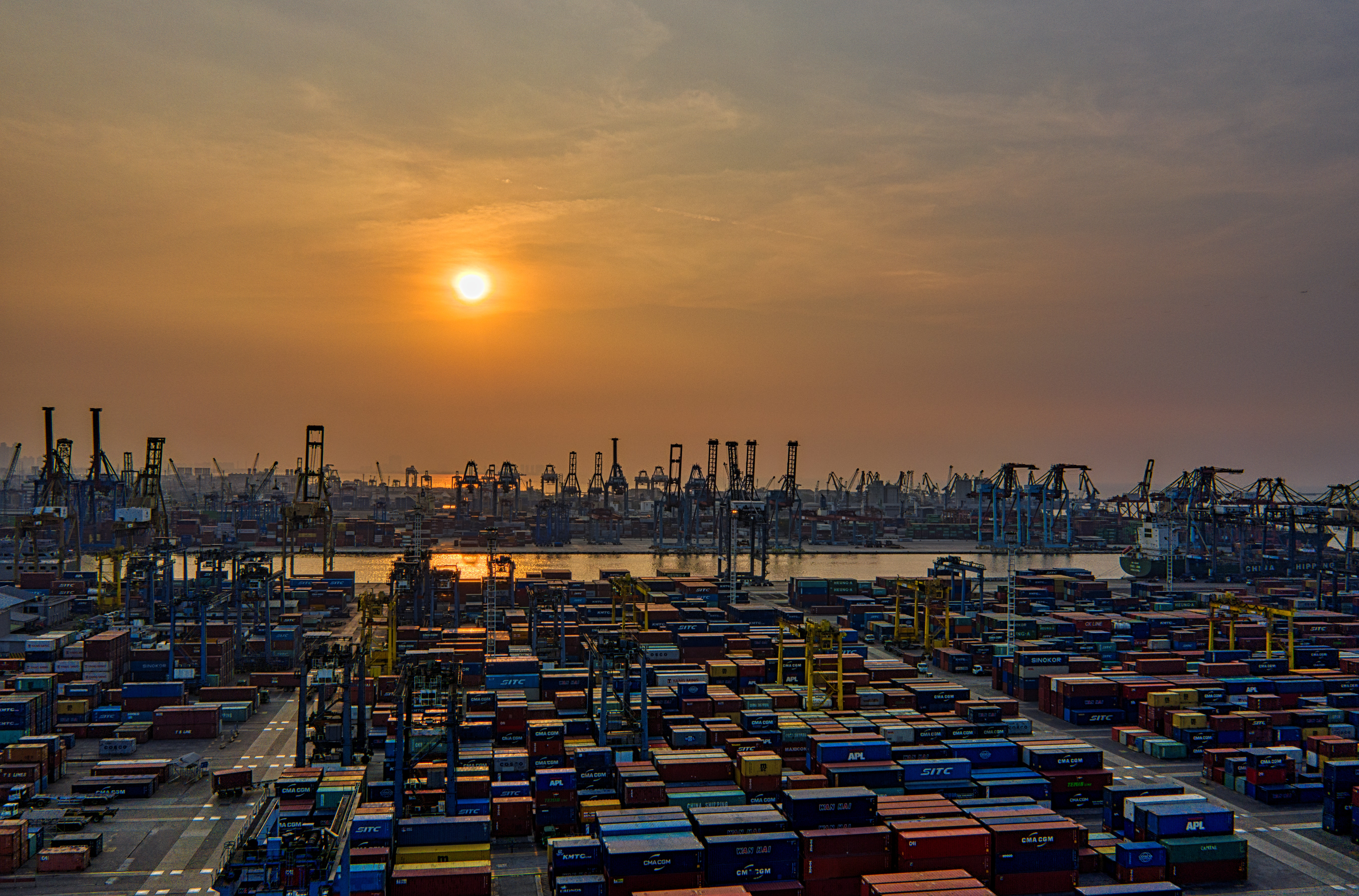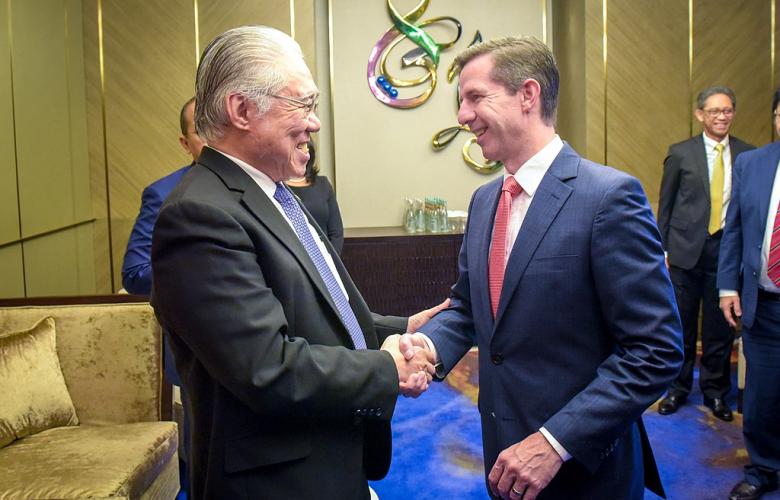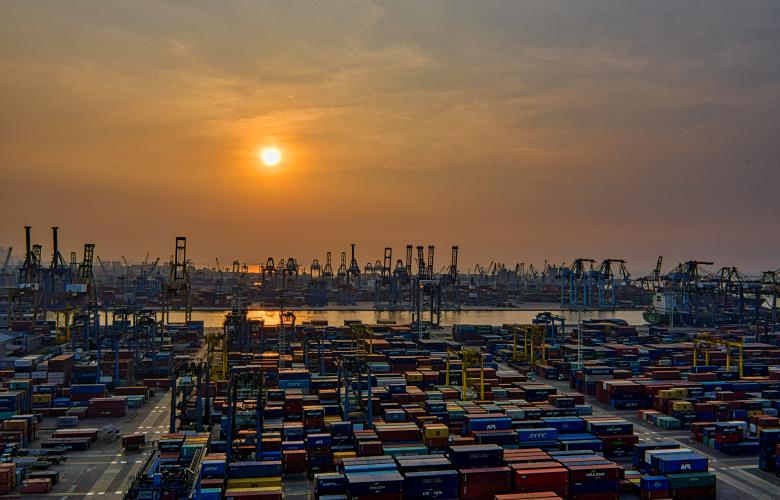The Indonesia-Australia Comprehensive Economic Partnership Agreement (IA-CEPA), which was signed in March this year and looks set to be ratified before the end of the year, signals a new chapter in economic and trade relations between the region's leading economies.
According to the Australian Government's Department of Foreign Affairs and Trade (DFAT) website, Indonesia presents a significant opportunity for Australian businesses as it is one of the fastest growing economies in the Indo-Pacific.
Unlocking potential
"By some estimates, Indonesia will be the world's fifth-largest economy by 2030, and IA-CEPA ensures that Australia is well-placed to deepen economic cooperation and share in Indonesia's growth," says DFAT.
 The Indonesia-Australia Comprehensive Economic Partnership Agreement (IA-CEPA) was signed in March and looks set to be ratified before the end of the year. Then Indonesian Minister of Trade Enggartiasto Lukita and Simon Birmingham Austrlia's Misniter of Trade at the IA-CEPA signing in March. Image courtsey of the Australian Embassy Jakarta on WikiMedia.
The Indonesia-Australia Comprehensive Economic Partnership Agreement (IA-CEPA) was signed in March and looks set to be ratified before the end of the year. Then Indonesian Minister of Trade Enggartiasto Lukita and Simon Birmingham Austrlia's Misniter of Trade at the IA-CEPA signing in March. Image courtsey of the Australian Embassy Jakarta on WikiMedia.
The agreement aims to unlock the potential that economic cooperation between the two countries can bring. DFAT claims that total two-way trade in goods and services with Indonesia makes the country Australia's 14th largest trading partner.
Game changer
IA-CEPA aims to build on an existing free trade agreement, the ASEAN-Australia-New Zealand Free Trade Agreement (AANZFTA).
DFAT suggests, "in addition to reducing non-tariff barriers to trade and simplifying paperwork, IA-CEPA will allow 99-percent of Australia's goods exports to enter Indonesia duty free or with significantly improved preferential arrangements. All Indonesia's goods exports will enter Australia duty free."
A report published in the Australian Financial Review says "in addition to reducing or eliminating tariffs on a range of goods, the big hope for IA-CEPA is that it will encourage individual and enterprise-level entrepreneurship by pairing Indonesia’s market of 260-million people with Australian technical and professional expertise."
An increase in the annual quota of holiday working visas issued to Indonesians hoping to gain some work experience in Australia is also on the cards, which some observers believe will have a negative effect on unemployment rates. The numbers however, are so low this is unlikely to have any serious impact.
Imports and Exports
According to Gatra, Australia is the 17th non-oil and gas export destination country and the 8th non-oil and gas importing country for Indonesia and the total trade between the two countries in 2018 was estimated at USD 8.6-billion.
Indonesia's exports to Australia last year were valued at US 2.8-billion and included oil, wood and furniture, LDC and LED display panels, footwear and tires.
Imports were valued at USD 5.8-billion and included wheat, coal, live cattle, raw sugar or sugar cane, and iron ore and other ores.
 Trade between Indonesia and Australia was estimated at USD 8.6-billion in 2018. Image by Tom Fisk on Pexels.
Trade between Indonesia and Australia was estimated at USD 8.6-billion in 2018. Image by Tom Fisk on Pexels.
Australian investment in Indonesia were valued USD 597.4-million in the same period and covered 635-projects and more than 400-Australian companies. These investments were in mining, agriculture, infrastructure, finance, health, food, beverages, and transportation.
Real Estate and tourism investment
Terje Nilsen from Harcourts Seven Stones is excited about the potential the IA-CEPA could have on the property industry. He told WILLIAMS MEDIA "investment is expected to see benefits in the sense that a larger level of trust and engagement is likely to happen and this will trigger more Australians to consider investing in real estate and tourism."
Sources: Kontan, Department of Foreign Affairs and Trade, Indonesia-Investments, The Jakarta Post, Australian Financial Review, Gatra, Kontan
Similar to this:
Cleaning Bali's rivers supports tourism
How can Indonesia's property industry move forward?
Building permits to be revamped under Omnibus Law



 The Indonesia-Australia Comprehensive Economic Partnership Agreement (IA-CEPA) was signed in March and looks set to be ratified before the end of the year. Then Indonesian Minister of Trade Enggartiasto Lukita and Simon Birmingham Austrlia's Misniter of Trade at the IA-CEPA signing in March. Image courtsey of the Australian Embassy Jakarta on WikiMedia.
The Indonesia-Australia Comprehensive Economic Partnership Agreement (IA-CEPA) was signed in March and looks set to be ratified before the end of the year. Then Indonesian Minister of Trade Enggartiasto Lukita and Simon Birmingham Austrlia's Misniter of Trade at the IA-CEPA signing in March. Image courtsey of the Australian Embassy Jakarta on WikiMedia. Trade between Indonesia and Australia was estimated at USD 8.6-billion in 2018. Image by Tom Fisk on Pexels.
Trade between Indonesia and Australia was estimated at USD 8.6-billion in 2018. Image by Tom Fisk on Pexels.


